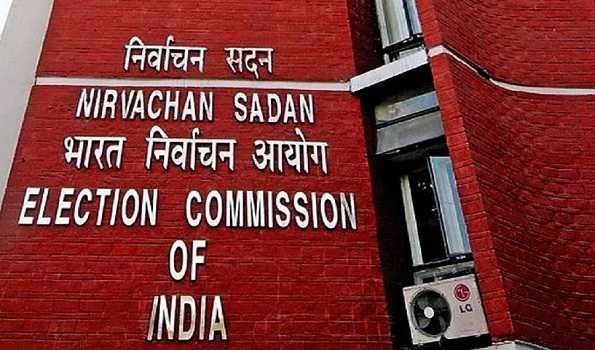
Patna, Sep 30: Prashant Kishor, leader of Jan Suraaj, criticised the Bihar government on Monday over poor flood measures in the northern part of the state.
He noted that about 50 per cent of Bihar’s land is at risk of floods, while around 30 per cent is permanently waterlogged, and 25-27 per cent of the land experiences drought conditions.
Talking about the flood situation, Kishor said in North Bihar, especially in the Terai region, districts like West Champaran, East Champaran, Sheohar, Sitamarhi, Madhubani, Darbhanga, Supaul, Araria, and Kishanganj are severely affected by flooding and soil erosion while, the issue of waterlogging is prevalent in districts such as Gopalganj, Siwan, Chhapra, Vaishali, Samastipur, Khagaria, and Begusarai, where large tracts of land remain submerged.
In contrast, Kishor said that South Bihar faces recurring drought, as water supply is insufficient in this region south of the Ganga River.
This geographic divide creates varied water-related challenges across the state, hampering agricultural productivity and livelihoods.
Prashant Kishor emphasised that the Jan Suraaj party’s forthcoming vision document will focus on a comprehensive water management plan rather than isolated flood control strategies.
“Instead of approaching floods, droughts, and waterlogging as separate issues, the plan will offer an integrated solution that addresses all three problems simultaneously,” he said.
He criticised the current approach, where distinct plans like the Kosi Plan or Gandak Plan are proposed, and instead advocated for a unified, statewide water management strategy.
“This strategy would ensure that water resources are managed more effectively and that the issues of floods, waterlogging, and drought are tackled through a coordinated framework,” Kishor said.
He also highlighted corruption as a significant factor in worsening the flood situation.
“The contractors, with the complicity of engineers and officials, deliberately damage embankments to secure more funds under the guise of flood control, allowing corruption to flourish,” he said.
To resolve these issues, he suggested that Bihar’s flood waters could be turned into an asset, pointing to China’s model of creating a river grid.
“China successfully tackled similar problems by linking rivers to manage floods, droughts, and waterlogging, thereby turning a natural challenge into a strength for agriculture and water management,” Kishor said.
–IANS






